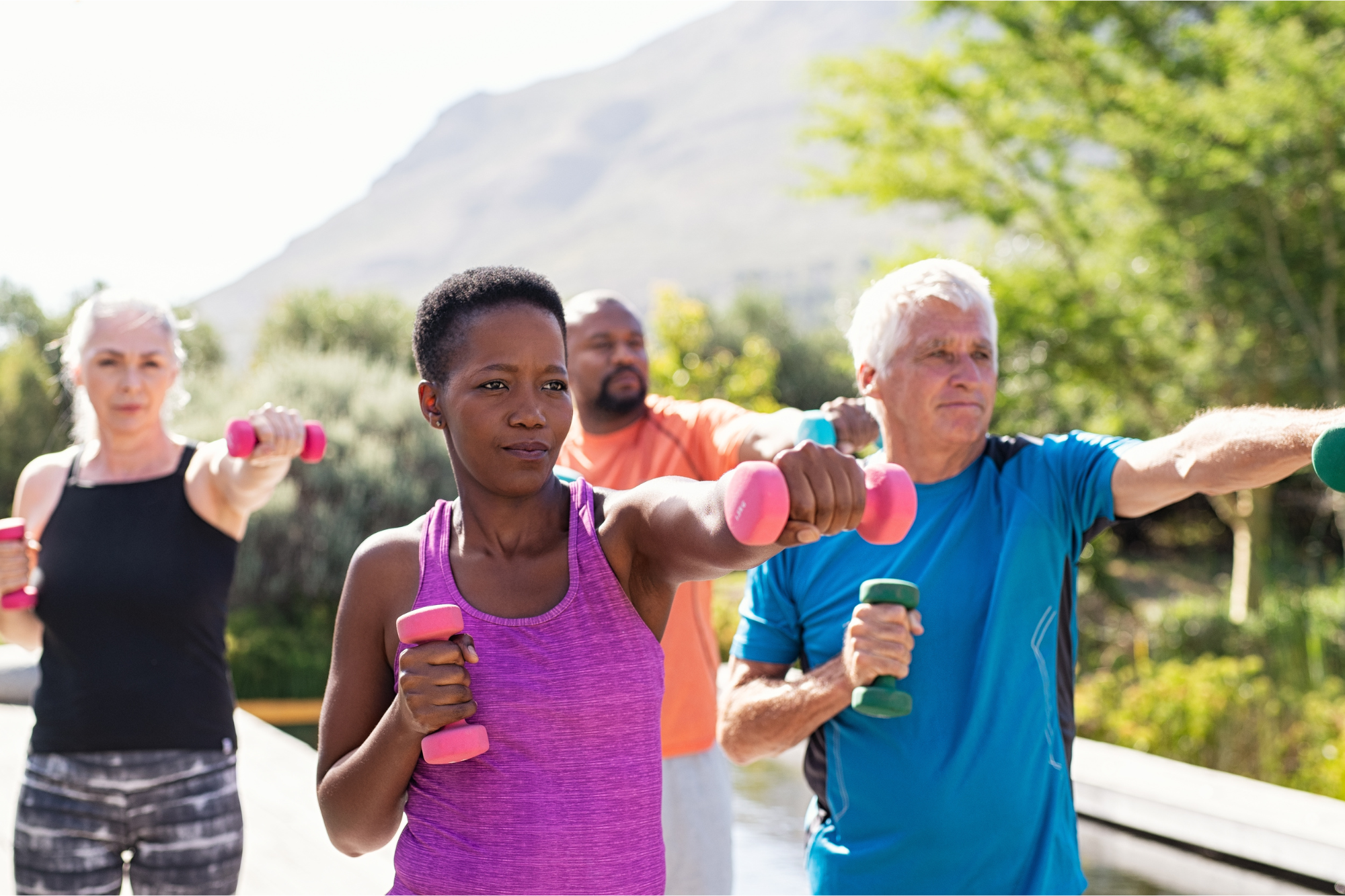Exercise apps do not meet older people’s needs
Notice: Undefined index: catFilterList in /home/zambi/public_html/wp-content/plugins/wp-likes/api.php on line 243
 Exercise apps do not meet older people’s needs
Exercise apps do not meet older people’s needsUOC News
8 February 2024
Exercise apps do not meet older people’s needs
A team of researchers at the hospital Parc Sanitari Pere Virgili and the UOC university analysed 15 apps to determine their usefulness for improving the online prescription of physical exercise
Only one of the applications they analysed is backed by scientific evidence supporting its use by frail people
In a context in which physical exercise is considered a key factor in healthy ageing, a group of researchers led by the physiotherapist at the Parc Sanitari Pere Virgili health complex Luis Soto, working with experts in digital health at the Universitat Oberta de Catalunya (UOC), examined the mobile applications for exercise available in the leading app stores. Their objective was to establish their usefulness for the online prescription of physical exercise and to determine whether they are adapted to older people’s needs.
“Based on the current scientific evidence, we always recommend increasing physical exercise, performing strength exercises and, above all, reducing sedentary behaviour. Doing exercise is obviously better than not doing it, but as professionals we must be able to optimize and adapt our prescription in terms of intensity, volume, frequency and progression,” explained Soto.
“The completely new aspect of this study, which has been published by the British Geriatrics Society, lies in the fact that it’s a systematic review, which uses the most rigorous methods for searching for, classifying and analysing applications, but it’s based on the marketplaces for apps on our phones, and not on purely scientific databases and search engines. This means it provides information about the apps that are available to us and which many people we know are probably using,” said PhD Marco Inzitari, Director of Integrated Care and Research at the Parc Sanitari Pere Virgili, and a researcher in the Faculty of Health Sciences and the eHealth Center at the UOC.
No app is adapted to cognitive function
The study analysed 15 of the more than 8,000 physical exercise applications available in Apple’s App Store and Google’s Play Store, which met the following criteria for inclusion: downloaded more than 10,000 times, aimed at older people, updated in the last three years, in English and not exclusive to any specific discipline.
“We found a limited range of apps for this user profile, and we believe that the ones that are available could be better adapted to the needs of frail older people in terms of both prescribing exercise and in their ease of use, thereby empowering them in the process,” explained the project’s principal investigator.
The analysis found no apps that were adapted to users’ cognitive needs. According to the researchers, an app aimed at older people needs to be simple, intuitive and focused on their needs. For this reason, they believe it is essential to include the end users of the apps in the creation processes, and above all, to involve older people from different backgrounds and with different levels of tech skills.
“Technology can help us, but it needs to be reviewed quantitatively and qualitatively. The objective of the study was to obtain a qualitative perspective (while also taking into account the scientific evidence) of apps that professionals could use for prescribing exercise for frail older people,” added Soto.
Finally, in their analysis the researchers found that only one of the 15 apps was based on scientific evidence (citations in the PubMed scientific publication search engine).
The institutions that participated in the study are Parc Sanitari Pere Virgili, Universitat Oberta de Catalunya, HiTT Foundation, Qida and the Blanquerna School of Psychology, Education and Sport Science (Ramon Llull University).
This research contributes to United Nations Sustainable Development Goals (SDGs) 3 Good health and well-being and 10 Reduce inequalities.
Reference article:
Luis Soto-Bagaria, Sophie Eis, Laura Mónica Pérez, Lorena Villa-García, Oriol de Solà-Morales, Carme Carrion, Maria Giné-Garriga, Marco Inzitari, Mobile applications to prescribe physical exercise in frail older adults: review of the available tools in app stores, Age and Ageing, Volume 52, Issue 12, December 2023, afad227, https://doi.org/10.1093/ageing/afad227
UOC R&I
The UOC’s research and innovation (R&I) is helping overcome pressing challenges faced by global societies in the 21st century by studying interactions between technology and human & social sciences with a specific focus on the network society, e-learning and e-health.
Over 500 researchers and more than 50 research groups work in the UOC’s seven faculties, its eLearning Research programme and its two research centres: the Internet Interdisciplinary Institute (IN3) and the eHealth Center (eHC).
The university also develops online learning innovations at its eLearning Innovation Center (eLinC), as well as UOC community entrepreneurship and knowledge transfer via the Hubbik platform.
Open knowledge and the goals of the United Nations 2030 Agenda for Sustainable Development serve as strategic pillars for the UOC’s teaching, research and innovation. More information: research.uoc.edu.
Related news
Can mobile health tools improve the effectiveness of physical activities programmes?
Older people use mobile phones more in countries with more affordable rates
The UOC researchers






















